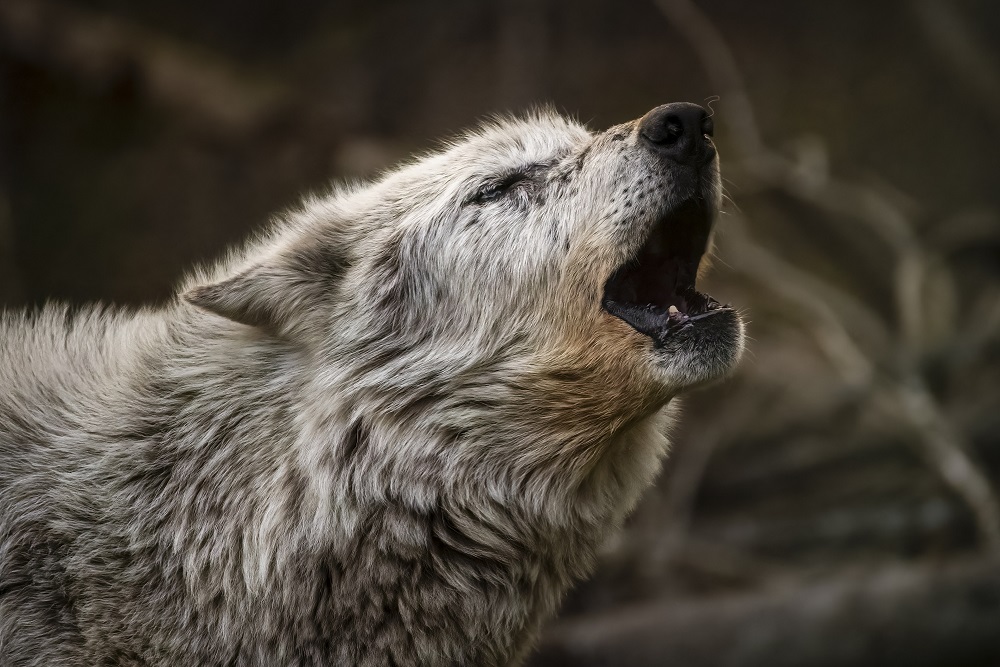It’s the end of an era at the Haliburton Forest Wolf Centre after its alpha female, Luna, passed away June 9.
Tributes have poured in from the community paying respects to Luna, who lived at the sanctuary for 13 years. Marena Wigmore, wolf centre manager, said Luna wasn’t only the longest living member of the existing pack, she was the oldest wolf the centre has housed in its 28 years in operation.
She was born in the wolf enclosure at Haliburton Forest in May 2011, to parents Granite and Haida. She survived her litter with two brothers – Logan and Lonestar – and a sister, Layla.
The community may recall those names as Granite, Haida, Logan, and Lonestar were the four wolves who escaped, and eventually died, after someone cut holes in the enclosure’s fencing on New Year’s Eve in 2012. It was an especially tragic event, Wigmore said, given it left the pack without a male.
“Luna stepped up and led her four sisters through that difficult time. She basically took over as the leader of the pack, the one the other wolves looked to for figuring out what was next,” Wigmore said. She maintained that role for more than 11 years – impressive given a wolf’s life expectancy is five or six years, Wigmore said.
Needing to introduce a new male to the pack, Fang joined in August 2013. Wigmore said it was almost love at first sight for Luna.
“She was the first one to approach Fang. They quickly figured things out and it wasn’t too long before mating season rolled around and they did the job they needed to do,” Wigmore said. “Luna was the strip of light in the dark. She brought hope back after such a horrible thing happened. That first litter of puppies she had was such a bright spot for everybody.”
Four pups arrived in that initial batch in 2014, though only one survived. Wigmore said through her life, Luna had eight litters of puppies totalling 32 offspring. Her last litter came in 2022, when Luna was 11.
Fang died in 2014, and Luna’s next mate, Piper, passed away last fall. After losing Luna, the pack is down to five wolves – all Luna’s offspring.
Wigmore said there was no major decline of note – Luna was still interacting with the other wolves and showing signs of life right up to her death. It was a quiet Sunday morning when staff realized the rest of the pack had returned from a feed without Luna.
“We realized then her age had finally caught up with her,” Wigmore said.
It’s going to take time for the pack to recover, Wigmore noted.
“They’re trying to figure out who to look to now, who do they trust,” she said. “The oldest remaining member is Quest, who is eight. After her, the next oldest wolf is four… so we anticipate she’ll be the guiding light post-Luna, but it won’t happen overnight,” she said.
“For all of them, Luna has always been a part of their life. So, it’s going to be a major shift. We may not know the extent of that shift until we go through a full cycle, a full year. Mating season is always a good indicator of what’s going on in the pack, and that comes in late February,” Wigmore added.
There hasn’t been a new litter since 2022 none of the wolves stepped up to take Fang’s place after he died, so this will be a major transition for the pack. Wigmore said the alphas will come internally – trying to add a new wolf when there are others who can fill those roles will likely cause problems.
Work is underway on a small sculpture that will commemorate Luna. Wigmore said it will be exhibited at the wolf centre once it’s complete.
Having recently celebrated her 10th anniversary working at the wolf centre, Wigmore said she had developed a close bond with Luna. So too, did the community.
“Luna was always good at surprising us. When we thought we knew what she was going to do, or what was next for her, she always found a way to keep us guessing. She was an amazing example of a wolf – it’ll be a long time before another Luna comes along, if ever,” Wigmore said.





